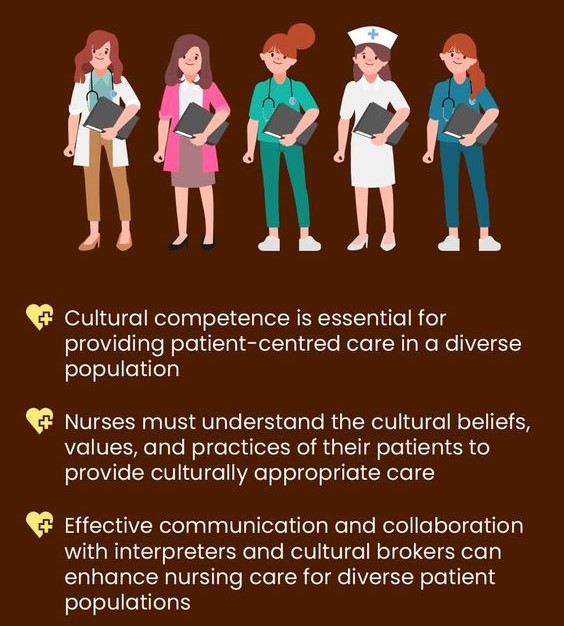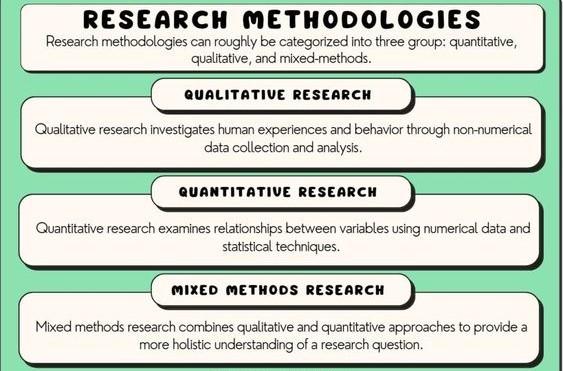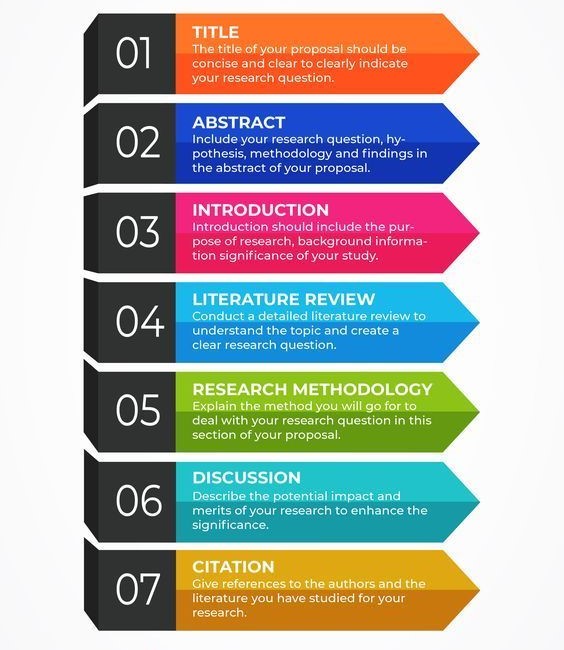
Table of Contents
Cultural competence has become an indispensable pillar in contemporary healthcare, and its integration into nursing practice is paramount. As a result, a nursing research paper on cultural competence has the potential to significantly impact clinical practice, patient outcomes, and the overall healthcare landscape. Crafting a compelling research paper on this vital topic requires a strategic approach, encompassing rigorous research, insightful analysis, and impactful communication.
This article serves as a guide to help you navigate the intricate process of writing a nursing research paper on cultural competence. We will delve into crucial steps, offering practical advice and actionable strategies to ensure your research stands out and contributes meaningfully to the field.
What is Cultural Competence in Nursing?
Cultural competence in nursing is the ability to provide effective, respectful, and culturally appropriate care to patients from diverse backgrounds. It goes beyond just understanding different cultures; it involves actively embracing and integrating diverse perspectives into practice.
Here’s a breakdown of key elements:
1. Understanding your own cultural biases: Recognize your own cultural values, beliefs, and practices. This self-awareness helps you identify potential biases that could impact your interactions with patients.
2. Learning about different cultures: Gain knowledge about various cultures, including their beliefs about health and illness, preferred communication styles, dietary practices, and family dynamics. This knowledge allows you to tailor care to individual needs.
3. Effective communication: Use clear and respectful language, avoiding jargon or slang that may be unfamiliar. Be mindful of nonverbal communication, such as eye contact and personal space.
4. Sensitivity to cultural differences: Recognize that each patient is unique and their experiences shape their health beliefs. Respect their choices and beliefs, even if they differ from your own.
5. Collaboration with diverse communities: Work with interpreters, cultural brokers, and community leaders to bridge cultural gaps and ensure effective communication and care delivery.
6. Continuous learning: Cultural competence is an ongoing process. Stay informed about cultural trends and be willing to adapt your approach as you encounter new cultural perspectives.

Why is cultural competence important in nursing?
- Improved patient outcomes: Culturally sensitive care leads to better patient engagement, adherence to treatment plans, and overall health outcomes.
- Enhanced patient satisfaction: Patients feel respected and understood when their cultural values are recognized and incorporated into their care.
- Reduced health disparities: Cultural competence helps address health disparities by providing equitable access to quality care for all populations.
- Improved professional growth: Understanding different cultures broadens your perspective, enhances empathy, and promotes professional growth.
Examples of Cultural Competence in Nursing:
- Asking patients about their preferred mode of communication and using interpreters when necessary.
- Incorporating cultural food preferences into meal planning for hospitalized patients.
- Respecting religious practices, such as dietary restrictions or the need for prayer space.
- Avoiding stereotypes and assumptions about patients based on their ethnicity or cultural background.
- Promoting cultural sensitivity among colleagues and advocating for culturally appropriate care practices.
Cultural competence is an essential skill for nurses in today’s diverse society. By embracing cultural sensitivity and actively striving to provide culturally appropriate care, nurses can improve the health and well-being of all patients.
How to Write Your Nursing Research Paper on Cultural Competence
1. Defining Your Research Focus: Setting the Stage
The first step towards a compelling nursing research paper on cultural competence is to clearly define your research focus. This requires identifying a specific aspect of cultural competence that you want to explore within the nursing context. Consider questions like:
- What specific cultural group are you interested in? Focusing on a particular ethnic, racial, or religious group allows for a deeper understanding of their unique healthcare needs and preferences.
- What aspect of cultural competence are you exploring? This could be understanding cultural beliefs about health and illness, addressing language barriers, or navigating cultural differences in communication styles.
- What specific setting are you interested in? Examining cultural competence in specific contexts like hospitals, clinics, or home health settings can provide valuable insights into the challenges and opportunities unique to those environments.
By focusing your research question, you can ensure a manageable scope for your nursing research paper on cultural competence, allowing you to conduct thorough research and present your findings in a cohesive manner.
2. Building a Solid Foundation: Selecting a Research Methodology
The choice of research methodology is crucial for the success of your nursing research paper on cultural competence. The methodology should align with your research question and the specific aspects of cultural competence you aim to investigate. Common methodologies used in nursing research papers on cultural competence include:

- Qualitative Research: This approach allows for in-depth exploration of perspectives and experiences related to cultural competence. Common methods include focus groups, interviews, and observation.
- Quantitative Research: This method utilizes statistical analysis to examine relationships and patterns related to cultural competence. Surveys, questionnaires, and data analysis are commonly employed.
- Mixed Methods Research: This approach combines both qualitative and quantitative methods to gain a comprehensive understanding of cultural competence.
The chosen methodology should be justified based on its suitability to answer your research question and provide meaningful insights for your nursing research paper on cultural competence.
3. Conducting Rigorous Research: Gathering Evidence for Your Nursing Research Paper
Once your research methodology is chosen, the next step is to gather relevant data to support your nursing research paper on cultural competence. The quality and depth of your research will determine the credibility and impact of your findings.
Key considerations for data collection include:
- Data sources: Utilize diverse sources of information, including scholarly articles, professional guidelines, patient narratives, and relevant government reports.
- Ethical considerations: Ensure that your research adheres to ethical principles, including informed consent, privacy, and confidentiality.
- Data analysis: Employ appropriate techniques to analyze your data based on your chosen methodology. For qualitative research, this could involve thematic analysis, while quantitative research might require statistical analysis.
- Rigorous analysis: Thorough data analysis is essential for drawing accurate and insightful conclusions for your nursing research paper on cultural competence.
4. Crafting a Compelling Narrative: Organizing and Presenting your Paper
The writing stage of your nursing research paper on cultural competence is where you bring your research to life. A well-structured and engaging narrative is essential for conveying your findings effectively and making a lasting impression on your readers.
Essential elements of a compelling research paper include:
- Introduction: Start with a compelling introduction that grabs the reader’s attention and provides a clear overview of your research topic and its significance.
- Literature Review: Provide a comprehensive overview of existing research on cultural competence within the nursing context. Highlight key concepts, relevant theories, and identify gaps in the literature that your research aims to address.
- Methodology: Clearly describe your research design, methodology, and data collection procedures. Provide a detailed explanation of your chosen approach, including its strengths and limitations.
- Results: Present your findings in a clear and concise manner, using tables, figures, and descriptive narratives to illustrate key themes and patterns.
- Discussion: Interpret and analyze your results, linking them back to your research question and the broader context of cultural competence in nursing practice.
- Conclusion: Summarize your key findings, discuss the implications of your research for nursing practice, and offer recommendations for future research.
- References: Ensure a comprehensive list of references cited within your paper.

5. Enhancing Impact: Tips for Writing an Impactful Nursing Research Paper on Cultural Competence
Beyond strong research and compelling writing, there are several strategies you can use to elevate your nursing research paper on cultural competence and maximize its impact:
- Clearly Articulate the Significance: Highlight the real-world implications of your research and how it can contribute to improved patient care, better healthcare outcomes, and a more culturally sensitive nursing profession.
- Present Practical Recommendations: Don’t just identify problems; offer concrete suggestions and practical solutions that nurses can implement to enhance cultural competence in their practice.
- Use Engaging Language: Avoid technical jargon and complex language. Use clear and concise language that is accessible to a wide audience, including nurses, educators, and policymakers.
- Visualize your Findings: Use figures, tables, and other visual aids to enhance the readability and memorability of your research.
- Consider Your Audience: Tailor your writing style and content to your target audience. Whether you are writing for a professional journal, a conference presentation, or a policy brief, consider the specific needs and interests of your audience.
6. Seeking Feedback and Refining your Nursing Research Paper
Before submitting your nursing research paper on cultural competence, seeking feedback from peers, mentors, and experts in the field is crucial. This feedback can provide valuable insights and help you identify areas for improvement.
Key aspects to consider for feedback include:
- Clarity and coherence of your argument: Is your research question clearly stated, and are your findings effectively presented and interpreted?
- Quality and rigor of your research: Have you employed appropriate methodologies, collected robust data, and analyzed it thoroughly?
- Relevance and impact of your findings: Do your findings have practical implications for nursing practice and contribute meaningfully to the field of cultural competence?
- Writing style and clarity: Is your writing clear, concise, and accessible to your intended audience?
7. Disseminating your Research: Sharing your Nursing Research Paper
Once your nursing research paper on cultural competence is finalized, consider how you want to disseminate it and reach your intended audience.

Here are some options for sharing your research:
- Submit to peer-reviewed journals: This allows your research to be disseminated to a broader academic audience.
- Present at conferences and workshops: This provides an opportunity to share your research with colleagues and engage in discussions about its implications.
- Develop policy briefs and white papers: This can bring your research to the attention of policymakers and advocate for changes in nursing practice and healthcare policy.
By disseminating your research effectively, you can ensure its findings contribute to meaningful change and help advance the field of cultural competence in nursing.
Examples of Topics for a Nursing Research Paper on Cultural Competence
Here are engaging topics for nursing research paper on cultural competence to inspire you:
- The Impact of Cultural Competence Training on Nurse-Patient Communication in a Diverse Urban Hospital: This nursing research paper on cultural competence could explore the effectiveness of training programs in improving nurses’ understanding of diverse cultural backgrounds and their ability to communicate effectively with patients from these backgrounds.
- Cultural Sensitivity and Pain Management: A Nursing Research Paper on Cultural Competence Examining the Influence of Cultural Beliefs on Pain Perception and Treatment Preferences: This paper could investigate how cultural beliefs and practices influence patients’ perception of pain and their preferred methods of pain management, highlighting the importance of cultural competence in providing effective pain relief.
- Exploring the Role of Cultural Competence in Reducing Health Disparities: A Nursing Research Paper on Cultural Competence focusing on a Specific Population: This paper could focus on a specific population experiencing health disparities, such as individuals from a particular ethnic group or with a specific disability, and examine how cultural competence can be used to address these disparities and improve health outcomes.
- Cultural Competence in End-of-Life Care: A Nursing Research Paper on Cultural Competence exploring the Impact of Cultural Beliefs on Advance Care Planning: This paper could delve into the diverse cultural perspectives on death and dying, examining how these beliefs influence individuals’ preferences for end-of-life care and advance care planning. It could also explore how nurses can provide culturally sensitive end-of-life care.
- The Relationship between Cultural Competence and Patient Satisfaction: A Nursing Research Paper on Cultural Competence investigating the impact of culturally sensitive care on patient satisfaction and loyalty: This paper could examine how culturally competent nursing care contributes to patient satisfaction and loyalty, leading to improved health outcomes and stronger patient-provider relationships.
- Developing a Framework for Integrating Cultural Competence into Nursing Education: A Nursing Research Paper on Cultural Competence proposing strategies for incorporating cultural competency into nursing curriculum and training programs: This paper could focus on developing and testing a framework for integrating cultural competence into nursing education, ensuring future nurses are equipped with the knowledge and skills to provide culturally sensitive care.
Remember, these are just starting points. Each of these topics could be further narrowed down to explore a specific aspect or population, and you can use these ideas to develop your own unique research question and contribute to the growing body of knowledge on cultural competence in nursing.

Writing a nursing research paper on cultural competence is a challenging but rewarding endeavor. By following the steps outlined in this article, you can navigate the complexities of this topic and create a research paper that stands out for its quality, relevance, and impact. Remember, nursing research papers on cultural competence can transform nursing practice, improve patient care, and create a more equitable and inclusive healthcare system for all.
By embracing the principles of cultural competence, nurses can provide care that is responsive to the unique needs and preferences of their patients, contributing to a more equitable and just healthcare system.
Nursing Research Paper Writing Help on Cultural Competence
Crafting an exceptional nursing research paper on cultural competence requires an ample time and exceptional writing skills. At Nursing Papers, we have experienced writers who can deliver compelling nursing research paper, essays, case studies and dissertations in the shortest time. We guarantee a customized research paper writing service that will truly surpass your expectations.







